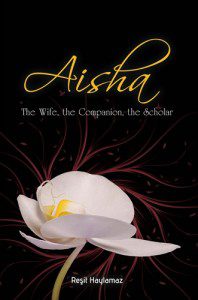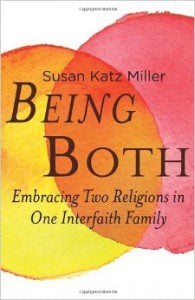 |
|
Lock up your kids
|
With the new television sitcom Aliens in America scheduled for release during the Fall season of 2007, perhaps July is too early for a preview. However, given the show’s concept and the international interest generated by the Canadian sitcom Little Mosque on the Prairie, the early preview is warranted. Developed by the producers of the Emmy and Golden Globe award-winning sitcom Mad About You, this fish-out-of water teen oddball buddy sitcom concept is not original, but it happens to be the first mainstream comedy aimed at an American teen market that directly confronts issues around the phenomenon of Islam in America.
From the show’s website:
“The show is about Justin Tolchuk, a lanky, sensitive 16-year-old just trying to make it through the social nightmare of high school in Medora, Wisconsin. When his well-meaning mom Franny signs up for the school’s international exchange student program, she pictures an athletic, brilliant Nordic teen who will bestow instant coolness on her outsider son. However, when the Tolchuk’s exchange student arrives, he turns out to be Raja Musharaff, a 16-year-old Pakistani Muslim. Despite the cultural chasm between them, Justin and Raja develop an unlikely friendship that just might allow them to navigate the minefield that is contemporary high school. It’s going to be a very interesting year for Raja, Justin, his family and the entire population of Medora.”
The production of this show is both exciting and disturbing – disturbing because I am disturbed by TV in general. I have been both fascinated and repulsed by the medium ever since I devoured Neil Postman’s Amusing Ourselves to Death as an alienated 16-year-old in Canada. However, I am excited that a mainstream television network like the CW is taking a chance with this timely and potentially groundbreaking comedy.
The title of the series is appealing because it employs the rich term “alien” to represent not only the immigrant experience in America but the adolescent experience in it as well. The show looks very ambitious, attempting to deal with not only racism, sexism and other identity-related issues but also with different manifestations of Islamophobia and the phenomenon of religion practiced publicly in a secular society.
But in this regard, it might be too ambitious. There is fertile ground here for comedy, but the show risks being hijacked by doctrines � both the doctrines of Islam and the doctrines of secular humanism. If that happens, the show may get a reputation for preaching rather than for comedy. What should distinguish this show is a high quality of writing and acting. But from the preview clips on the CW website, it seems uneven, with moments that are enlightening and fresh aside moments that seem to reinforce rather than challenge stereotypes. Some moments that seem meant to be funny simply fall flat.
Whether or not Adhir Kalyan, who plays Raja, is Muslim is irrelevant. In fact, it would be better for the show if he were not Muslim. All good comedies take risks and the actors in them have to do the same. Understandably, most American Muslims have not been in the mood to take a lot of risks lately, with all the negative public perceptions of them. So many Muslims (particularly young ones) in North America are struggling with self-image that to experiment with it on prime-time television might be more than they can handle.
Additionally, naming the lead character “Raja” will undoubtedly irk many South Asian Muslims who generally avoid names for their children not derived from the Arabic of the Qur’an. The name “Raja,” derived from the Indo-European language Sanskrit, means “king” and is an uncommon name for a Pakistani Muslim. A more common name amongst Pakistani Muslims like “Ali,” which is still easy for English speakers to pronounce, would have lent the character more credibility. And combining “Raja” with the obvious “Musharaff” seems to reflect the Bollywood sensibility of patching together aspects of Muslim and Hindu culture in a way that reflects social engineering rather than entertainment. Still, the American Muslims of Pakistani heritage who could form part of the core audience may ironically find a character named “Raja” mirrors their own alienating experiences in America.
Kalyan has a burden on his shoulders that would be difficult for an actor of any age, gender, and any ethnic background or religion . For the show to succeed, he has to act like an ordinary teenager, a FOB Desi (“fresh off the boat” South Asian) and a practicing Muslim at the same time. Building on stereotypes, he has to subvert expectations and conventions in a meaningful enough way to allow the diverse audience, both non-Muslims and Muslims, to relate to him. Instead, Kalyan’s Apu-meets-Yoda accent is often annoying and some of his religious manners seem way over the top. Muslims might conclude this reflects an ignorance by the producers about Islam and Muslims.
But despite these shortcomings, Kalyan has the potential to do a lot with Raja. Kalyan is a relatively inexperienced young actor trained in the performing arts from Trinity College in South Africa who speaks English, Afrikaans and French and does stand-up comedy. He has done a little television work on the BBC and this seems to be his introduction to prime time American network television.
Given the mediocrity of director Luke Greenfield’s work in The Girl Next Door, it looks like the early success of the show will depend heavily on the writing team of Moses Port and David Guarascio (who worked on Just Shoot Me) and the acting of the mostly unknown young leads, especially Dan Byrd (The Hills Have Eyes) as Justin. Byrd, in particular, seems promising.
Ulitmately, the CW is taking a calculated risk with Aliens – a leap of faith, if you like. Given that Islamophobia is as prevalent as anti-Semitism and other forms of bigotry, the attempt to produce such a show is laudable. If it succeeds in overcoming its awkwardness and the critical eyes cast upon it, it may also succeed in making people laugh and learn.
Rizwan Mohammad is a Canadian Muslim of South Asian heritage from Toronto. He is currently a graduate student of Islamic Philosophy at McGill University in Montreal, Canada. A version of this piece was first published in Q-News, Britain’s leading Muslim current affairs magazine.











